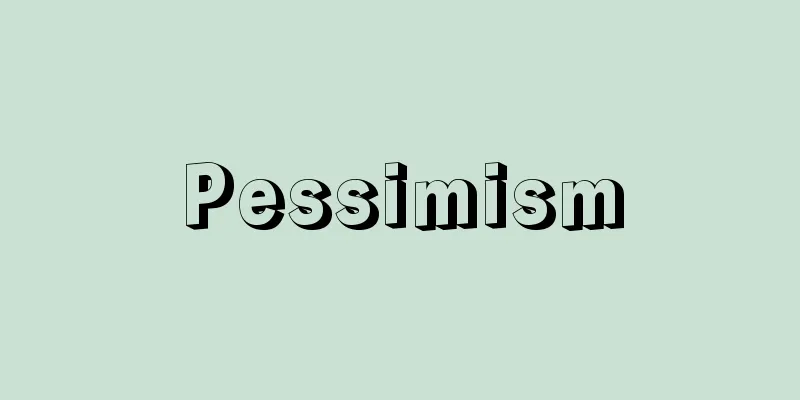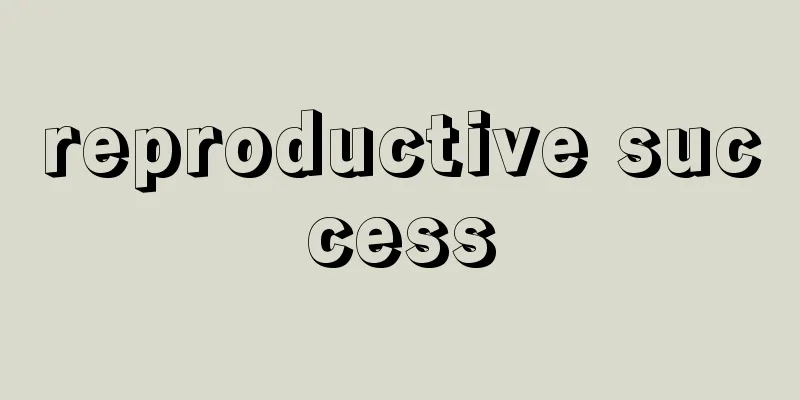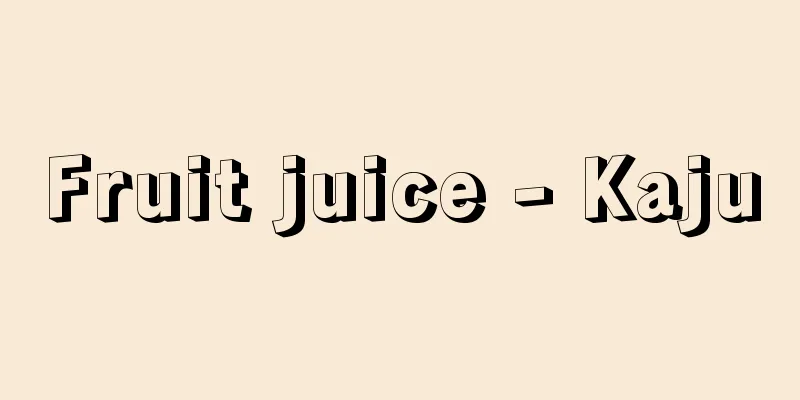Pessimism

|
It is translated as pessimism or pessimism. The word comes from the Latin pessimum, which means "the worst." It is the opposite of optimism. It is the belief that evil reigns on this earth and that humans cannot eradicate it as long as they live, and it often develops into the idea that life is not worth living. The 6th century BC Greek poet Theognis sang, "To be born on earth, not to see the glittering light of day, is the best thing of all; but to be born and quickly reach the gates of the god of death is the next best thing..." Dualistic beliefs that place two entities, good and evil, light and darkness, in extreme opposition inevitably lead to pessimism. Since physical existence on earth is itself evil and impure, humans cannot be saved as long as they live in this world. As long as humans are in the flesh and in this world, they are enslaved to the laws of reproduction and death and cannot escape the world of darkness. If there is salvation in this world, it can only be in death. Only through death can the sin of birth be atoned for and the soul be resurrected in oneness, in an inseparable, illuminated state. This kind of pessimistic thinking is often found among Greeks who were influenced by the teachings of Orphism (an ancient Greek mystery religion said to have been founded by the mythical poet Orpheus), which separated the body and soul. In modern times, Schopenhauer preached the philosophy of pessimism, which he said was based on the idea that the world is irrational and ruled by blind will. Life is painful, and liberation from it is only possible by realizing the futility of the pursuit of pleasure and reaching a state of no desire, that is, a state of Nirvana where the phenomenal world returns to nothingness, through the complete denial of will. [Katsuhiko Ito] [References] | | |Source: Shogakukan Encyclopedia Nipponica About Encyclopedia Nipponica Information | Legend |
|
厭世(えんせい)観、または厭世主義、悲観主義と訳される。「最悪」を意味するラテン語pessimumに由来することば。オプティミズム(最良観、楽天主義)の反対。この地上は悪が支配していて、生きる限り人はこれを根絶できないという考えで、しばしば人生は生きるに値しないという思想に発展していく。紀元前6世紀のギリシアの詩人テオグニスは、「地上の人の世に生まれず、きらめく日の光を見ず、それこそすべてに勝りてよきことなり。されど、生まれしからにはいち早く死の神の門に至るが次善なり……」と歌っている。 善と悪、光と闇(やみ)という二つの実在を極端に対立させる二元論信仰は、必然的にペシミズムに導かれる。地上における肉体的生存そのものが悪であり、穢(けが)れである以上、人間はこの世に生きる限り救われがたいことになる。肉においてこの世にある限り人間は生殖と死の法則に隷属し、暗黒の世界を抜け出すことができない。この世に救いがあるとするならば、それは死においてだけであろう。死によってだけ、生誕の罪は償われ、一者のなかに、光明に包まれた不分離のなかに、魂が生き返ることができる、ということになる。 このような厭世思想は、霊肉分離的なオルフィズム(神話上の詩人オルフェウスの創始と伝えられる古代ギリシアの密儀宗教)の教えの影響を受けたギリシア人のうちに、しばしば認められる。近代においてペシミズムの哲学を説いたのはショーペンハウアーで、彼によれば、世界は不合理で、盲目的意志が支配している。人生は苦であり、これからの解脱(げだつ)は、ただ、快楽追求のむなしさを悟り、無欲求の状態、すなわち、全き意志否定によって、現象世界が無に帰するニルバーナ(涅槃(ねはん))の境地に達することによってだけ可能であるというのである。 [伊藤勝彦] [参照項目] | | |出典 小学館 日本大百科全書(ニッポニカ)日本大百科全書(ニッポニカ)について 情報 | 凡例 |
Recommend
Inohabu
...In addition, attention should also be paid to ...
Honzan School
〘Noun〙 A sect of Shugendo. Its founder was Zoyo, a...
Scrubber
A device that captures solid or liquid particles s...
Red sedge - Red sedge
...The cultivated Akebonosyoma A. rosea and A. × ...
Mitsui & Co., Ltd. - Mitsui Bussan
Founded in 1876, it was the core company of the Mi...
Aconitum napiforme (English spelling)
…Poison [Nitta Aya]. . . *Some of the terminology...
Basin of Paris - Paris bonchi (English spelling) Bassin de Paris
A large basin in northern France. Plains and hills...
Shigeharu Kikuchi
⇒ Yoshitake Kikuchi Source: Kodansha Digital Japan...
Respiratory function test
Respiratory function is sufficient if it is able t...
SCAP
Supreme Commander for the Allied Powers . The pers...
Enemy property management
In times of war, a belligerent nation takes contro...
Kisaburo Yokota
International law scholar. Born August 6, 1896 in...
Corvus corax (English name)
… [Yukio Taniguchi]. … *Some of the terminology t...
SP - esp
〘Noun〙① (Abbreviation of standard playing record) ...
Sulfur determination method
...Later research (the molecular formula is (OH) ...









